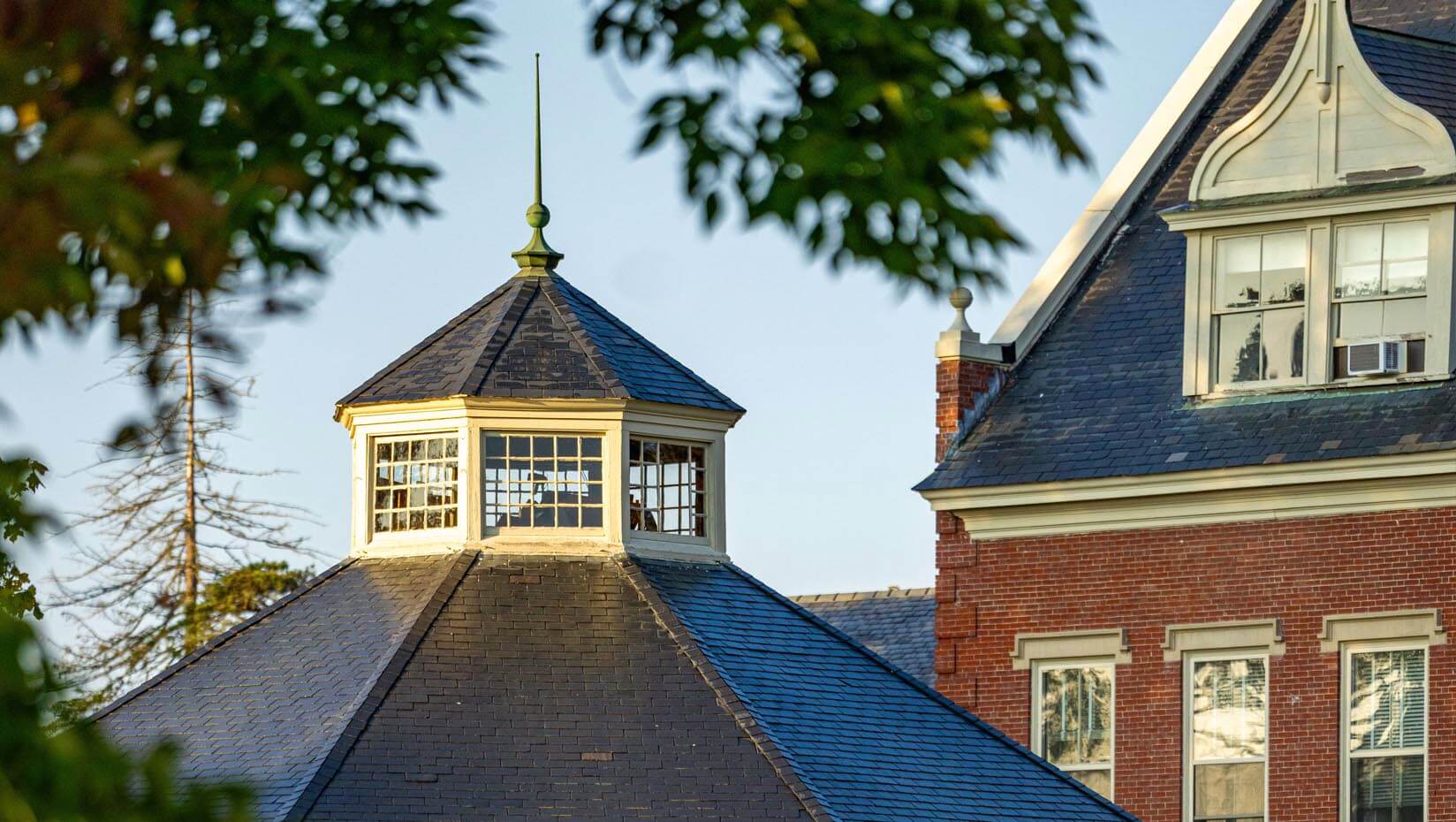
UMaine names 2024 Presidential Award recipients
The 2024 Presidential Awards recognize outstanding teaching in wildlife ecology, pioneering research in biodiversity, significant public engagement and research focused on voting, innovation in aquaculture and extraordinary impact on young entrepreneurs and communities across Maine.
Lindsay Seward, a principal lecturer in wildlife ecology, received the Presidential Outstanding Teaching Award. Brian McGill, professor of ecological modeling, received the Presidential Research and Creative Achievement Award. Robert Glover, associate professor of political science and associate professor of honors, received the Presidential Public Engagement Achievement Award. Deborah Bouchard, associate extension professor, aquatic animal health specialist and director of the Aquaculture Research Institute, received the Presidential Innovation Award. Nory Jones, professor of business information systems, received the Black Bear Award for Extraordinary Impact.
“These talented, driven and accomplished faculty embody our university’s core mission and values: making a difference in Maine and worldwide through effective teaching, meaningful research, community service and transformative mentorship,” said University of Maine President Joan Ferrini-Mundy. “Lindsay is a selfless educator whose thought-provoking and caring education style has encouraged many students to become environmental stewards. Brian’s research has helped mold our understanding of biodiversity, a fundamental parameter of ecological systems. Rob tirelessly dedicates himself to empowering people to engage in our democratic institutions and develop impactful public policy. Debbie’s innovative research improves the health of aquatic species and bolsters our blue economy. Nory’s unyielding commitment to community betterment and inclusive excellence has improved the lives of countless people statewide and inspired a new generation of advocates.”
“The achievements of all of this year’s Presidential Award recipients have brought long-lasting positive change not only for the students they mentor, but also many others in Maine and beyond,” Ferrini-Mundy says. “I personally want to thank them for everything they have offered us, and look forward to seeing what they accomplish next.”
Lindsay Seward
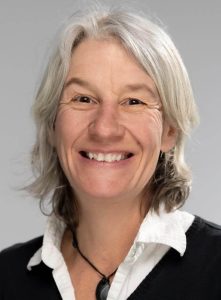
Seward’s goal as an educator is straightforward — to cultivate dynamic, fun and inclusive learning communities that foster curiosity, inspire a passion for learning and nurture a growth mindset. An alumna of UMaine, Seward has remained committed to supporting her students for more than two decades as a faculty member in the Department of Wildlife, Fisheries, and Conservation Biology. Her courses and mentorship facilitate student growth in critical thinking by encouraging them to grapple with new and divergent ideas; problem-solve through trial and error; and be willing to make mistakes. She believes these strategies inspire resilience, persistence and a positive attitude toward learning.
Seward’s colleagues commend her as the most gifted educator they have met in more than 25 years of teaching in higher education. Students seek her advice, guidance or encouragement when they are struggling — which she is always able to provide and help them feel better than when they arrived at her door. She masterfully balances holding students to high standards and teaching them to think critically, while also remaining unwavering in her support, care and inclusive approach to teaching. She forges a personal relationship and is on a first-name basis with every student in her department, nearly 200 at any given time.
Seward’s students describe her as a dedicated and passionate educator, teaching first-year to capstone courses. Many have gone on to top graduate programs and become leaders in conservation. Her students speak to her personality, approachability, humor, encyclopedic knowledge of her field and steadfast commitment as a trusted mentor. Her passion for studying the environment and teaching the next generation of wildlife and fisheries professionals was recognized in 2019 by the Maine Chapter of The Wildlife Society Award of Meritorious Service.
Seward has also been recognized by the College of Earth, Life, and Health Sciences as a recipient of the Faculty Teaching Award in 2013, and by the university as recipient of the Advisor of the Year award in 2012 and Faculty Mentor Impact award in 2023.
Brian McGill

Since joining UMaine in 2010, McGill has established himself as an internationally-recognized expert and leader in macroecology, one who has helped shape its nature and trajectory. His work advocated for the importance of prediction in ecology and identified unifying principles in the field.
McGill has also pioneered solutions to conceptual issues in his discipline related to the widely-used but vaguely-defined term biodiversity. McGill and his colleagues developed a series of methods and tools to better measure and assess biodiversity in management contexts.
McGill has published more than 130-peer reviewed papers and book chapters, with multiple publications in the top academic journals, including Science, Nature, PNAS, Trends in Ecology and Evolution and Ecology Letters. He was named one of the most cited researchers worldwide in 2019, 2020 and 2021 by Web of Science. His research is also featured in textbooks from high school to the graduate level. He served until recently as editor-in-chief of Global Ecology and Biogeography and formerly as associate editor of Frontiers of Ecology and Environment, American Naturalist, and Global Ecology and Biogeography.
McGill is a lifetime honorary fellow of the Ecological Society of America, which is bestowed to approximately 250 of the organization’s 9,000 members. He also received the 2020 Outstanding Faculty Research Award from what is today UMaine’s College of Earth, Life, and Health Sciences. In 2023, he earned one of the most prestigious scientific honors in Germany, the Humboldt Research Award.
Through the blog “Dynamic Ecology,” McGill and two co-authors influence the way research is conducted in labs across the planet and provide mentorship globally on successfully navigating academic culture, making a successful academic career accessible to a more diverse population. The blog, with 700,000 visits per year, is the most widely read in academic ecology.
In addition to serving as a professor of ecological modeling with UMaine’s School of Biology and Ecology, McGill holds a joint appointment in the Mitchell Center for Sustainability Solutions and a cooperating appointment in the Climate Change Institute.
Robert Glover
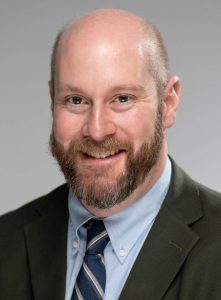
Glover has dedicated his career to empowering students and fellow researchers to engage in the democratic process. Through his work as associate professor of political science and honors, he has brought actionable policy insights to political leaders and mentored UMaine students on how to become political changemakers.
Since 2016, Glover has co-led UMaine UVote, a nonpartisan student voting effort to encourage voter registration, educate young voters and bolster election turnout. He initiated the UMaine UVote Student Ambassadors program, a peer-to-peer outreach and organizing model. His team has trained students and assisted with local elections administration. This has led to marked increases in student voter turnout. Because of his efforts, more than 85% of UMaine students registered to vote and 73% voted in 2020. As a result, UMaine was recognized nationally for civic engagement by Washington Monthly and the ALL IN Campus Democracy Challenge.
Since 2017, he has acted as co-leader of Maine’s chapter of the Scholars Strategy Network (SSN). The organization works to improve public policy and strengthen democracy through communicating expertise embedded within scholarly communities. As part of Maine SSN, he helped place more than 330 op-eds on contemporary policy issues from Maine scholars in the Bangor Daily News and Kennebec Journal. He has also helped scholars publish in national and global media outlets.
At UMaine, Glover developed an advanced policy research seminar that engages students in codesigning and co-executing a policy research project with their peers and community partners. He has served as a faculty fellow and board member at Brandeis University’s Educational Network for Active Civic Transformation (ENACT), which empowers college educators across the country to develop engaged policy courses.
Community impact and relationships with those affected by public policy often serve as the starting point for his scholarly research. His statewide work on policy attitudes toward overdose and the opioid crisis has helped drive conversations about policy response. He has also worked closely with research collaborators and the Maine Town and City Clerks’ Association to investigate local election officials’ perceptions of Maine’s move to ranked choice voting.
Deborah Bouchard
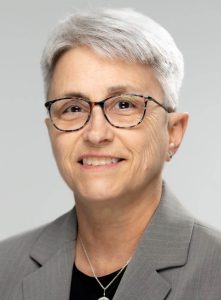
Bouchard has dedicated more than 30 years to advancing aquatic animal health and aquaculture across the public and private sectors. For the past 18 years, she has been an integral part of UMaine, serving as the director of the Aquaculture Research Institute (ARI) and as an associate professor of aquatic animal health within the UMaine Extension.
Since its establishment in 2009, the ARI has emerged as a leading authority on aquaculture research in Maine, spearheading efforts to foster a sustainable aquaculture future locally and globally. Under Bouchard’s leadership, the ARI has facilitated interdisciplinary research in academic and applied domains, such as social dimensions of aquaculture, aquatic animal health, aquatic species biology and reproduction, and ecological dimensions of aquaculture.
Bouchard has led initiatives to bridge research discoveries to practical applications. As project leader for the Aquatic Animal Health Division of the Cooperative Extension Diagnostic Research Laboratory, Bouchard has been instrumental in advancing research and development in aquatic animal feeds, vaccines, therapeutic agents and feed supplements for aquaculture and marine resource industries nationally and internationally. Her collaborative endeavors with industry stakeholders have resulted in significant improvements in fish health, bolstering the economic resilience of Maine’s aquaculture sector.
Her innovative contributions include coinventing a compound for combating sea lice, a threat to the sustainability of farmed Atlantic salmon. She and her research partners have submitted patent filings for cutting-edge aquaculture vaccines and nanobubble water treatment solutions, highlighting her commitment to healthier marine life and a sustainable aquaculture industry.
Bouchard’s commitment to advancing Maine’s aquaculture extends beyond research, evidenced by her collaborations with various organizations such as Maine Sea Grant, the Lobster Institute and governmental bodies such as the Maine State Department of Marine Resources and the USDA Agricultural Research Service. Her efforts have facilitated the development of projects such as the Sustainable Aquaculture Workforce Innovation Center, which expands ARI’s contributions to inclusive workforce development and fosters innovation in aquaculture through direct industry engagement.
Nory Jones
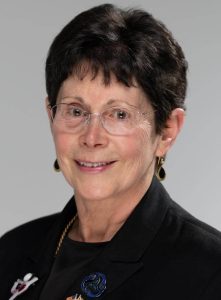
Using her leadership skills, business acumen and unwavering compassion, Jones has uplifted countless people at UMaine, the Town of Orono and surrounding towns, and has empowered thousands of students to make a difference in these communities too.
Since joining the Maine Business School in 2001, Jones has dedicated about 10,000 hours to community service, which includes advising nine clubs, participating on 20 committees and supporting six organizations. Her efforts involved collaborating with hundreds of students, faculty, staff and community members.
As an advisor of nine student organizations, Jones impacted as many as 1,240 students. The club she advised the longest was MBS Corps., which she cofounded in 2005. Over the past 19 years under Jones’ guidance, MBS Corps. established a food pantry that serves about 50 meals per week, facilitated an annual March Against Domestic Violence and hosted an annual dodge ball tournament to raise money for organizations that address veteran suicide.
In 2012, Jones launched the Undiscovered Maine student project to bolster tourism and economic development in historically underrepresented areas of the state, particularly Downeast, Aroostook County and Western Maine. Under her tutelage, students created a web portal with more than 650 pages of resources about these areas and the experiences they offer, including itineraries, blogs and small business success stories. Undiscovered Maine has been featured in several media outlets, including National Geographic, and its social media followers on Facebook and Instagram have reached 1,300 and 650, respectively. This year, students in Undiscovered Maine participated in ecosystem economic development for Fort Fairfield, Maine.
Jones also has volunteered for several groups dedicated to supporting veterans, including the Maine Troop Greeters, the UMaine Veteran Advisory Committee and the UMaine Veterans Association. As a member of Maine Troop Greeters since 2008, she has greeted more than half a million troops as they deployed or returned home. Part of her service has also involved making UMaine more diverse, inclusive and welcoming for all, such as volunteering for Women in Business and the CETA Promotion and Tenure discussion series. Outside of UMaine, Jones also supported the Children’s Miracle Network and statewide Entrepreneurship Working Group.
Contact: Shelby Hartin, shelby.hartin@maine.edu
